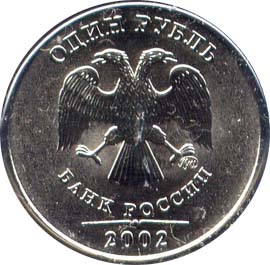Many experts believe that Russia will fall into a deep recession next year, due primarily to a drop in oil prices. The recession, as a matter of fact, may have already begun. However, the Russian economy is, for the time being, the eighth largest in the world, with nominal gross domestic product (GDP) of $2 trillion, according to the International Monetary Fund (IMF). Its size means a recession will rattle economies of other nations that are among its largest trade partners.
In its “Russian Economic Report” issued in September, the World Bank expressed major reservations:
Russia’s economy is stagnating. Seasonally adjusted growth for the first two quarters of 2014 was near zero. Consumer and business sentiments were already weak in 2013 due to lingering structural problems and contributed to the wait-and-see attitudes of households and companies. Heightened market volatility and policy uncertainty due to geopolitical tensions during the first half of this year exacerbated this confidence crisis. The Russian economy needed to internalize several rounds of sanctions, countersactions [sic], and measures to stablize the economy this environment of higher risk lowered domestic demand. While the macroeconomic stabilization were timley [sic] and successful, medium-term policy suggestions are still being designed. This continued policy uncertainty about the economic course of the country is casting a shadow on Russia’s medium-term prospects.
These comments were made before the most recent likelihood of deeper economic damage emerged.
ALSO READ: Gold and Silver Outlook for 2015
The IMF comments in the concluding statement of its September visit to the Russian Federation were no more encouraging that those of the World Bank:
The economic outlook appears bleak. GDP is expected to grow by only 0.2 percent in 2014 and 0.5 percent in 2015. Consumption is expected to weaken as real wages and consumer credit growth moderate. Geopolitical tensions — including sanctions, counter-sanctions, and fear of their further escalation — are amplifying uncertainty, depressing confidence and investment. Capital outflows are expected to reach USD 100 billion in 2014 and moderate somewhat but remain high in 2015. Inflation is projected to remain over 8 percent by the end of 2014 mostly due to an increase in food prices, caused by import restrictions, and depreciation of the ruble. In the absence of further policy actions, inflation is expected to stay above target in 2015. Despite the slowdown, the economy is expected to have limited excess capacity owing to structural impediments to growth.
Risks are tilted to the downside. Current projections assume a gradual resolution of geopolitical tensions over the next year. Deterioration of confidence, or an escalation or prolongation of geopolitical tensions, could lead to larger capital outflows, greater exchange rate pressure, higher inflation, and lower growth. A reduction in world oil prices could amplify this impact.
Put another way, the deep, troubled economic problems in Russia reported by the IMF were posted, once again, before the current crisis.
The CIA Factbook’s experts reported just how dependent employment is on the oil production sector. Industry is over 38% of GDP. And the core of its economy relies on energy production. The Factbook’s experts report:
Russia has undergone significant changes since the collapse of the Soviet Union, moving from a globally-isolated, centrally-planned economy towards a more market-based and globally-integrated economy, but stalling as a partially reformed, statist economy with a high concentration of wealth in officials’ hands. Economic reforms in the 1990s privatized most industry, with notable exceptions in the energy and defense-related sectors. The protection of property rights is still weak and the private sector remains subject to heavy state interference. Russia is one of the world’s leading producers of oil and natural gas and is also a top exporter of metals such as steel and primary aluminum. Russia’s manufacturing sector is generally uncompetitive on world markets and is geared toward domestic consumption. Russia’s reliance on commodity exports makes it vulnerable to boom and bust cycles that follow the volatile swings in global prices. The economy, which had averaged 7% growth during 1998-2008 as oil prices rose rapidly, was one of the hardest hit by the 2008-09 global economic crisis as oil prices plummeted and the foreign credits that Russian banks and firms relied on dried up. Slowly declining oil prices over the past few years and difficulty attracting foreign direct investment have contributed to a noticeable slowdown in GDP growth rates. In late 2013, the Russian Economic Development Ministry reduced its growth forecast through 2030 to an average of only 2.5% per year, down from its previous forecast of 4.0 to 4.2%. In 2014, following Russia’s military intervention in Ukraine, prospects for economic growth declined further, with expections [sic] that GDP growth could drop as low as zero.
Add to its dependence on oil that Russia relies on foreign credits, which have recently disappeared.
Russia may not hold on its place as the eighth largest nation by GDP. As a matter of fact, it could fall down that list by several places.
ALSO READ: 10 Dying and 10 Thriving U.S. Industries
It’s Your Money, Your Future—Own It (sponsor)
Are you ahead, or behind on retirement? For families with more than $500,000 saved for retirement, finding a financial advisor who puts your interest first can be the difference, and today it’s easier than ever. SmartAsset’s free tool matches you with up to three fiduciary financial advisors who serve your area in minutes. Each advisor has been carefully vetted and must act in your best interests. Start your search now.
If you’ve saved and built a substantial nest egg for you and your family, don’t delay; get started right here and help your retirement dreams become a retirement reality.
Thank you for reading! Have some feedback for us?
Contact the 24/7 Wall St. editorial team.


